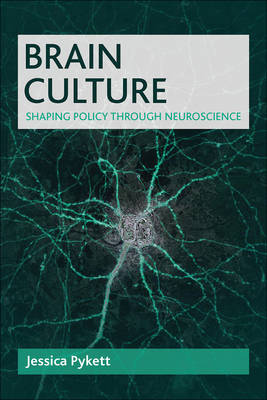
Stock image for illustration purposes only - book cover, edition or condition may vary.
Brain Culture: Shaping Policy through Neuroscience
Jessica Pykett
€ 38.99
€ 38.50
FREE Delivery in Ireland
Description for Brain Culture: Shaping Policy through Neuroscience
Paperback. This unique book offers a timely analysis of the impact of rapidly advancing knowledge about the brain, mind and behaviour on contemporary public policy and practice. It analyses the global spread of research agendas, policy experiments and everyday practice informed by 'brain culture'. Num Pages: 214 pages, 10 black & white illustrations. BIC Classification: JHBA; JP; RGC. Category: (P) Professional & Vocational. Dimension: 158 x 328 x 2. Weight in Grams: 348.
This unique book offers a timely analysis of the impact of rapidly advancing knowledge about the brain, mind and behaviour on contemporary public policy and practice. It offers an alternative, geographically informed set of explanations for what matters in explaining how people behave and how citizens' behaviour should be governed.
This unique book offers a timely analysis of the impact of rapidly advancing knowledge about the brain, mind and behaviour on contemporary public policy and practice. It offers an alternative, geographically informed set of explanations for what matters in explaining how people behave and how citizens' behaviour should be governed.
Product Details
Publisher
Policy Press
Format
Paperback
Publication date
2017
Condition
New
Number of Pages
214
Place of Publication
Bristol, United Kingdom
ISBN
9781447314059
SKU
V9781447314059
Shipping Time
Usually ships in 7 to 11 working days
Ref
99-50
About Jessica Pykett
Jessica Pykett is a social and political geographer at the University of Birmingham, UK. Her research to date has focussed on the geographies of citizenship, education and behavioural forms of governance. Her previous books include The Pedagogical State and Changing Behaviours (with Rhys Jones and Mark Whitehead). She teaches on the spatial politics of welfare, work and wealth.
Reviews for Brain Culture: Shaping Policy through Neuroscience
Pykett's uniquely geographical perspective on the psycho-spatial connects brain culture to city design, educational spaces and affective workplaces, arguing cogently for a politically engaged approach to the worldly implications of brain research. Gail Davies, University of Exeter Amid the profusion of literature on neuroscience and its implications for society comes this welcome and necessary intervention. With characteristic clarity, precision and depth, Jessica Pykett charts the full reach of neuroscientific and behavioural explanations that are used to shape the policies and practices through which we are governed. Elizabeth Gagen, Aberystwyth University
